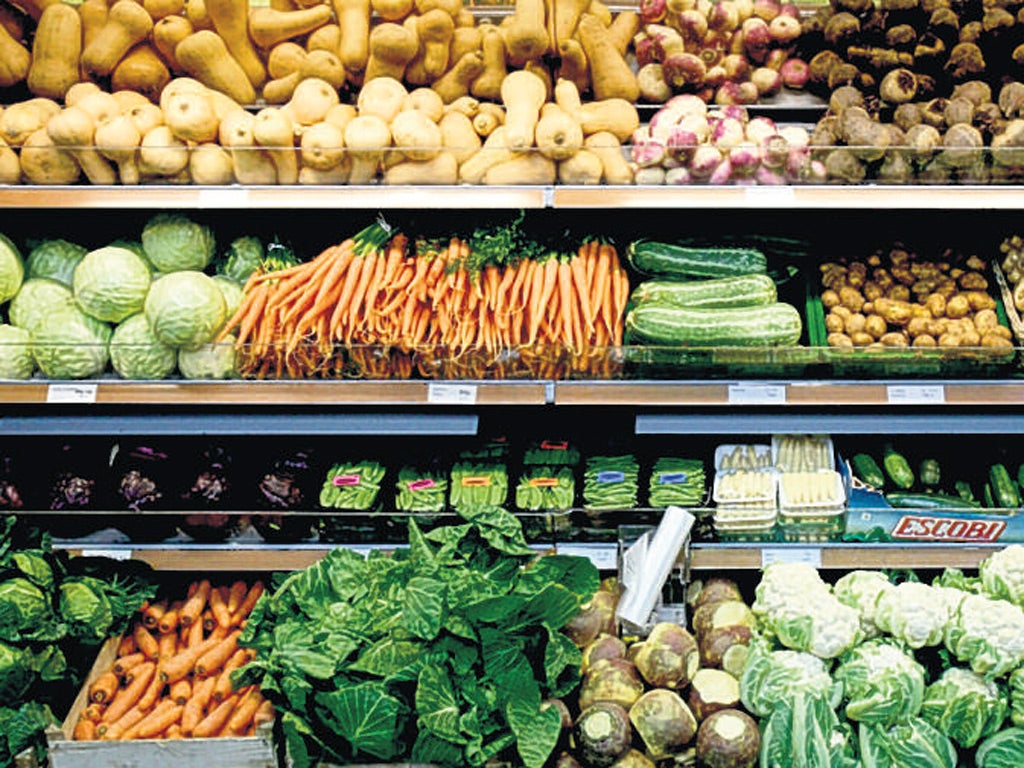Will Dean's Ideas Factory: Big Food gets lost in the supermarket fresh aisles

What's the mark of a good supermarket? According to one (ahem) supermarket-funded survey quoted in the Wall Street Journal, it's the fresh fruit and vegetable section at the front of the stores.
And not only do the fresh sections shape shoppers' perception of stores – in the US at least – the presence of fruit'n'veg is said to create a "halo-effect" for the not-so-healthy products that are placed there. So we might see a carton of juice next to the courgettes and subconsciously associate the product with a healthiness that may be unmerited.
Knowing this has, unsurprisingly, led to processed food giants such as Kraft asking for some of their products – ie, dairy items – to be moved to the front of the store. They have the power to do this because US grocers receive "slotting fees" to place certain products in preferred places. (Which is why branded products are often at eye level.) But the supermarket chains, says the Journal's report, are worried that letting things like cheese slices into the home of fresh tomatoes will damage the "freshness credibility" that has made these areas so valuable in the first place.
Especially when the supermarkets are doing their best to emulate farmers' markets and preserve a market being threatened (in the US at least) by club retailers like Costco. It's a fascinating battle – and a reverse of the UK where the supermarkets are dominant. So don't say you weren't warned when you see Dairylea next to the broccoli...
Read more: ind.pn/aislededamned
Do black cabs really need apps?
Is finding a black cab, so hard? App makers seem to think so – PR blurbs for two new ones (Hailo and Cab: App) have just landed. The apps allow passengers to virtually hail and track black cabs. Does this make cabbies no different from their rivals, the minicabs? To find out, I asked tweeting cabbie Seamus Balfe (@seataxi). Balfe has had the Black Cabs app for a month but while he's enthusiastic about new business opportunities ("There'll be someone at Morgan Stanley using an app, rather than spending a fortune on call-out charges") he's aware that on-demand apps dilute the essence of a black cab: "Hearing black cabs and private hire in the same sentence does rankle," he admits. Will it transform the trade? Best to watch this space. Or just tweet "@Taxi!"
How Princeton University is standing up for the little guy
This is roughly how academic journals work: researchers complete their work then... hand over their work to publishers (who get it reviewed for free by other academics), who can then charge huge fees to read them – which blocks access for ordinary readers.
As this work is often funded by the taxpayer (or public bodies such as the NHS) one major university is no longer going to stand for it. US Ivy League college Princeton has told academics that they aren't to hand over copyrights when submitting research – which ought to make the publishers rethink their models.
Princeton's approach is being celebrated this week (sans cake) in UK colleges such as LSE as part of Open Access week. This doesn't mean the paywalls come down – but is to remind academics how vital it is that they publish the full text of their research in open access databases before signing away access to their research.
Which could go a long way to freeing millions of words' worth of knowledge.
Read more: ind.pn/openacc
The man giving a second life to a town's dead bicycles
In the Ideas Factory car park (or, more accurately, the back of Finsbury Park Tube station) there's a never-changing sight. That of a non-moving convoy of abandoned bicycles, slowly rotting, having long been left for dead and their removable parts vultured away by unenterprising thieves.
They look, frankly, awful, and not only that, they're often a waste of perfectly good bikes, too. A 2007 report suggested that there are around 27,500 bikes discarded in London alone each year.
Enter Independent reader Alan Ross. A steel sculptor by day, Ross has taken to finding bikes left to rot in his Herefordshire town of Ross-on-Wye and reshaping them into custom-made choppers (see above). Locals have even taken to leaving old bikes outside his house to reshape. Ross doesn't sell the ghostly creations but – what else? – races them against his friends. It's one of several ways of making use of dead bikes – see Cyclemas, a 2005 project in Oxford to turn old rides into a Christmas tree. If you have similar ideas there's just one thing to remember. Make sure the bike is definitely abandoned. Otherwise you're just a bike thief.
Send us your Ideas Factory fuel
The Ideas Factory is a weekly round-up of the best, weirdest and most interesting new discoveries, theories and experiments from around the world. If you have an idea you'd like to share, I'd love to hear from you. You can email me on w.dean@independent.co.uk or tweet me at @willydean
Join our commenting forum
Join thought-provoking conversations, follow other Independent readers and see their replies
Comments
Bookmark popover
Removed from bookmarks